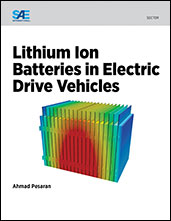Technical Paper
Heat Pipe/Two-Phase Flow Systems For Vehicle Passenger Cabin Cooling
2002-06-03
2002-01-1970
The National Renewable Energy Laboratory (NREL) has initiated projects to investigate the benefits and design challenges of using heat pipe/two-phase flow technologies to provide sub-system cooling and thermal management in future advanced vehicles, hybrid electric vehicles, and heavy-duty vehicles. Projects initially focused on vehicle instrument panel (IP) heat pipe cooling and passenger seat thermal management, but will also investigate engine cooling, electric motor cooling, and battery cooling in the future. Experimental results have demonstrated IP surface temperature reductions of 20°C-30°C during maximum solar intensity environments of 525-800 W/m2 (typical of Golden, CO from January to April) compared to uncooled conditions. The heat pipe cooling effect in the IP also reduced windshield temperatures by 9°C-12°C compared to the non-cooled configuration in April 2001 testing.

